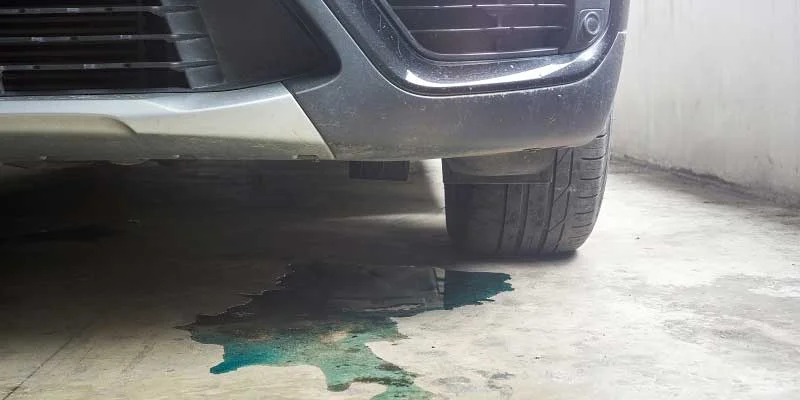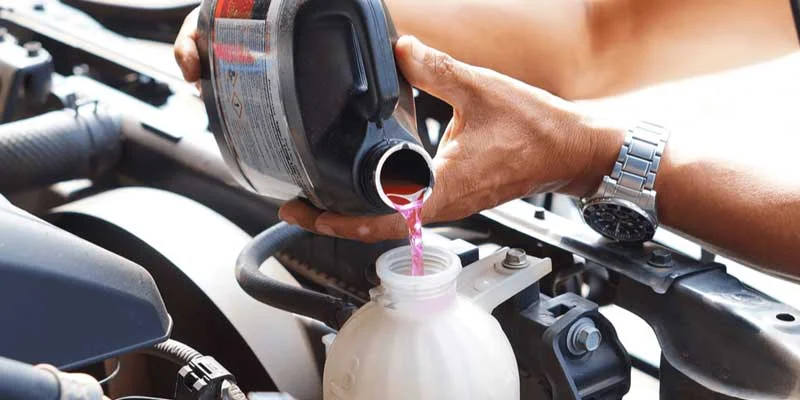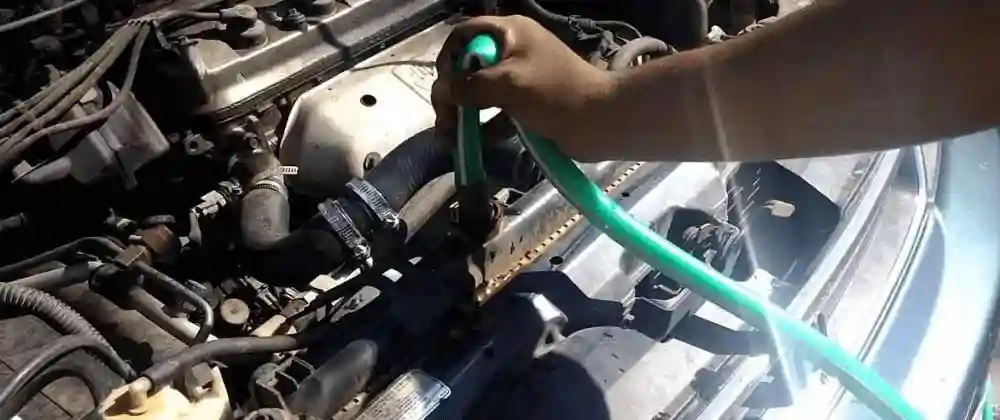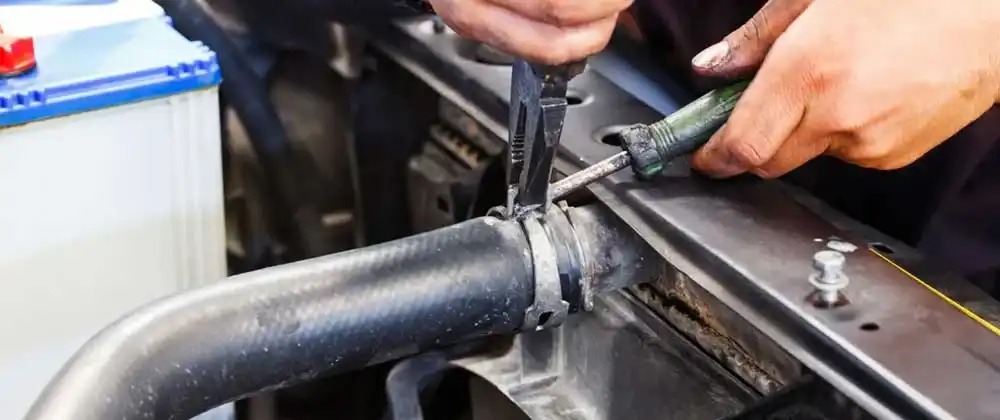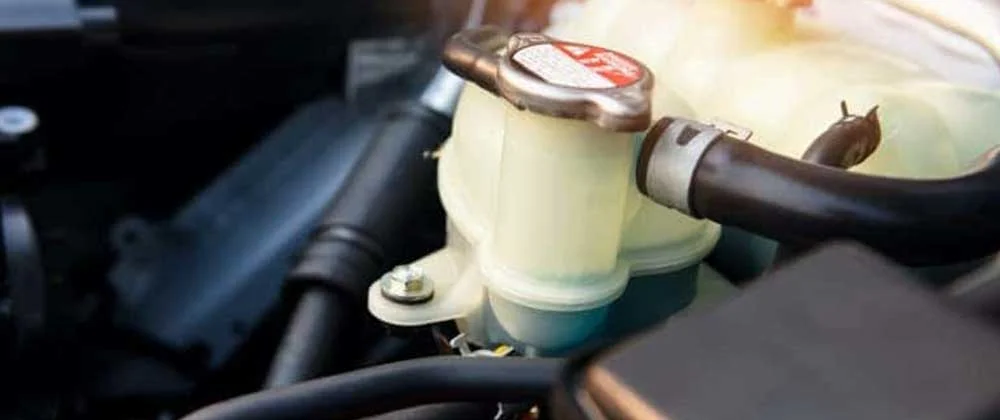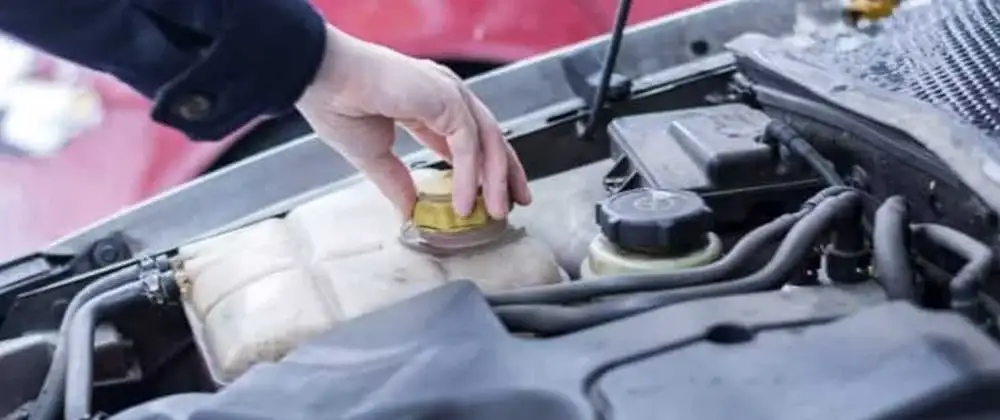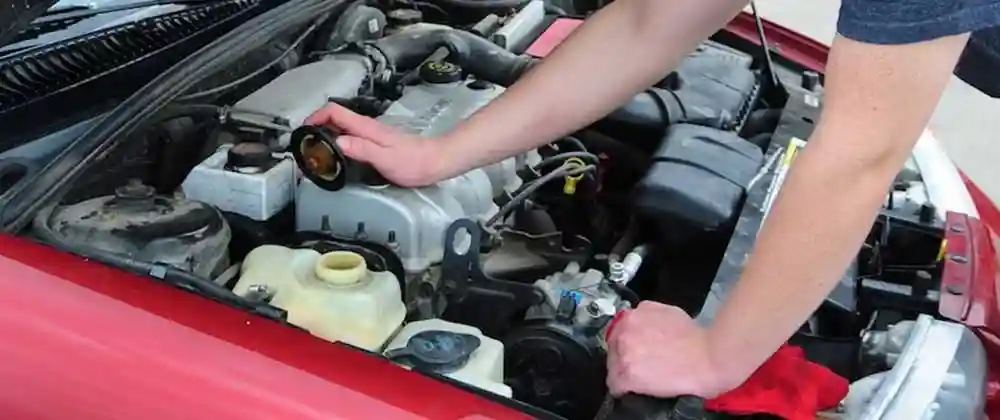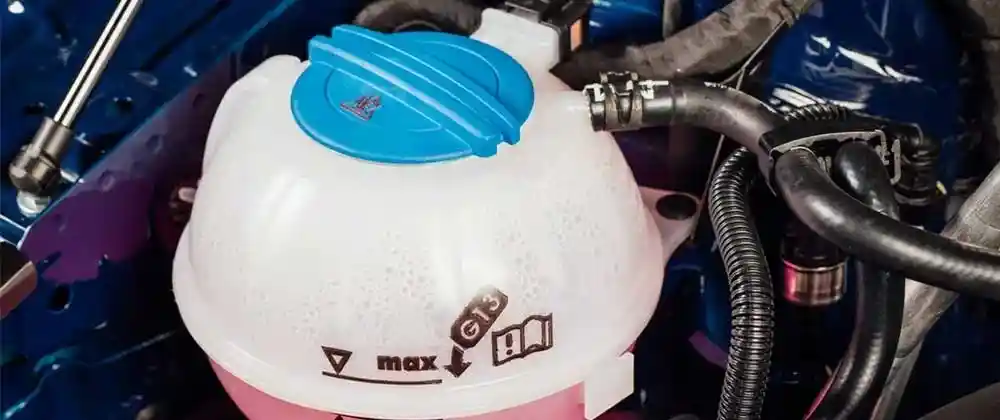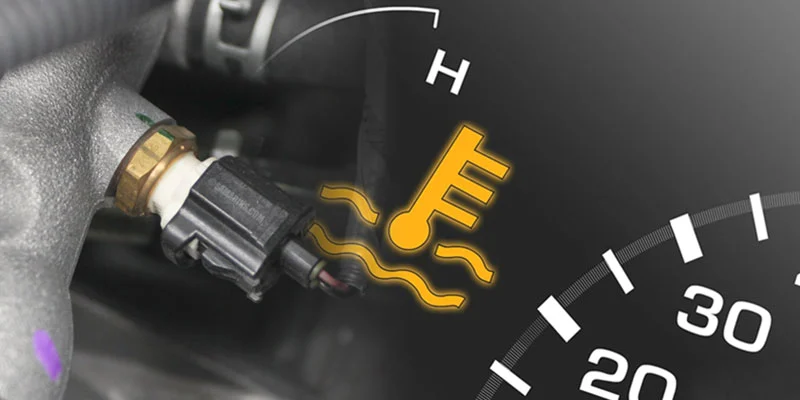If you are experiencing frequent engine overheating issues, you must wonder, Why is my coolant constantly disappearing? The main job of coolant is to keep the engine cool.
The disappearing coolant in your engine may be due to a slightly damaged hose, a small hole in your radiator, or a water pump problem. A cooling leak can occur in your vehicle or evaporate into mist through your defroster. Low coolant levels or internal coolant leaks are detrimental to the engine’s health.
In many cars, an expansion tank is located beside the engine and connected with the rubber hoses to lead coolant to and from the tank. Any crack in this tank or hoses may also result in a coolant leak.
In this blog post, we are going to discuss in detail the various causes that lead to coolant leaks:
What Causes Leaks in Coolant?
Here are some of the prominent causes of coolant leaks:
1. Your Engine is Running Warm or is Overheating

The most typical sign of leaky radiator fluid is that your engine temperature is hot. In the beginning, you might be able to see your engine increasing; however, with long drives, the car could begin to overheat. If you feel your car is overheating, mainly if it is detected by your car and you are driving, stop as soon as possible by pulling off to the roadside or a parking area for it to cool off. It is feasible to drive your vehicle in short bursts to bring it to a mechanic, but you should not drive it too fast, or you may suffer severe engine damage.
If you notice a high fluctuation in a temperature gauge, it potentially reflects a coolant leak.
2. You’ll find Coolant Puddles Under the Car.
Examine the underside of your car after it’s been sitting for a long time. Do you notice any areas where fluid is dripping from your vehicle? Check the color and smell. Engine oil is darker in color and may smell like gasoline oils. If it’s coolant, it might be pink or orange in hue and possess more of a sweet smell. In any scenario, it’s time to schedule an appointment with a mechanic, as it clearly indicates a radiator leak.
3. Many Reasons Could be the Reason for Your Coolant Leak
If you are experiencing leaks in your coolant, there are several possibilities of culprits the cause. They all require an expert mechanic to pinpoint the issue and may be detected by ensuring regular car maintenance before you notice any symptoms.
4. The trouble with Your Radiator or Cap for Your Radiator
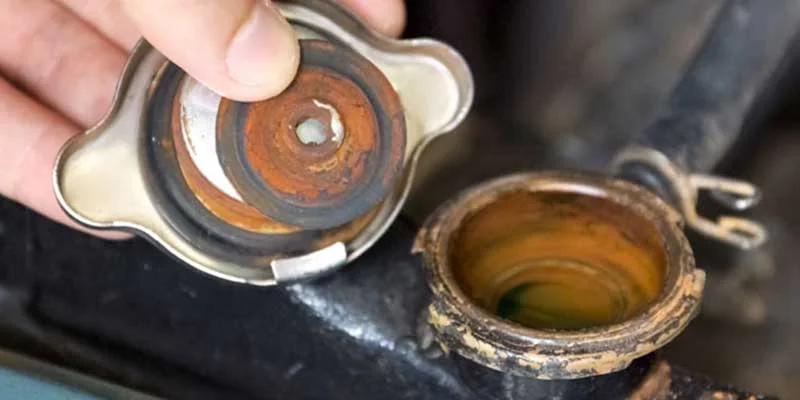
One of the most frequent causes of a coolant leak is the rusting of your vehicle’s radiator. Coolant flows throughout the radiator through your car’s engine; it returns to the radiator carrying heat away from the engine and cooling the radiator. A blown radiator hose results in frequent coolant leaks.
As time passes, the sediment that builds up in your coolant may cause wear and tear on the radiator, causing the possibility of leakage of coolant. There is also a chance that the cap on your radiator could get worn out. And, since your cooling system operates under a lot of pressure, it could cause coolant to leak from the cap.
5. Blown Head Gasket
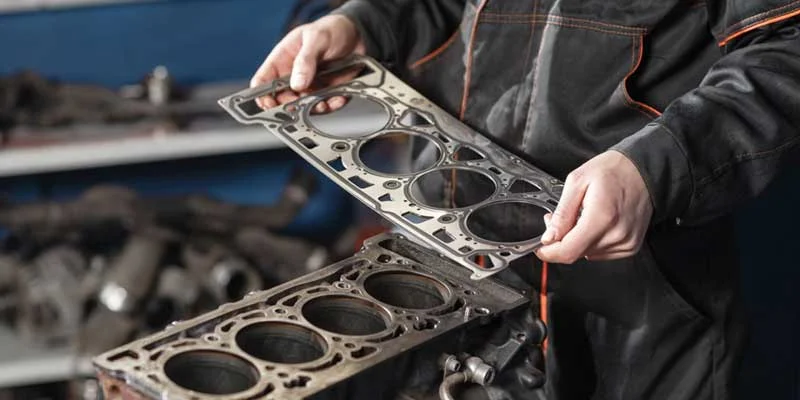
The head gasket is crucial to keep your engine running and running. If it leaks because of wear and is referred to as a blowing head gasket. In this case, your coolant and engine oil can likely mix, creating problems in maintaining your engine. It could lead to the coolant leakage out of the cooling system and engine and result in your engine overheating. In either scenario, the result could be engine failure.
- Signs and symptoms from Blown Head Gasket
- White smoke emanating from the tailpipe
- BUBBLING IN THE RADIATOR, AND COOLANT RESERVOIR
- Unexplained loss of coolant with no leaks
- White coloration with milky hues in the oil
- Engine overheating
Because the gasket for the cylinder head also seals in cooling fluid and the oil, you could notice streaks of oil and coolant leaking out of the gasket.
There could be a loss of engine power because of lower compression in the cylinders if the head gasket leaks into adjacent engines.
If you are experiencing one of the symptoms listed above, your cooling system might be under pressure. Stop the engine and don’t attempt to relieve the pressure
6. A Failed Water Pump
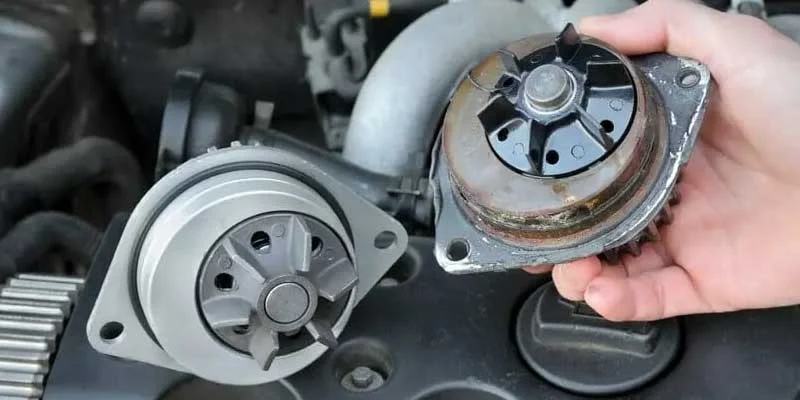
Your vehicle’s water pump is responsible for the coolant circulation through your cooling unit. If it gets worn out, the coolant won’t be in a position to circulate at the same speed or in any way. It can lead to the engine becoming overheated. A water pump with a damaged seal or attached hose connections could leak coolant and increase the risk of engine overheating and causing severe engine damage. It can also lead to other external damage.
Frequently Asked Question
Is it serious about having a cooling fluid leak?
Even though a tiny leak in the coolant may not seem like a severe problem, it can lead to an engine failure that is complete or irreparable harm. The coolant system is considered one of the most crucial components of any vehicle since it helps keep the engine’s temperature at a minimum by cooling the water/antifreeze mixture pumped through the engine block.
Is a Leaky Coolant Repairable by Itself?
Leaks just don’t quit leaking (in almost ALL cases). Broken items don’t just magically heal. A coolant leak could be stopped, but you can be assured that it will come back the same way, just as bad if it decides to come back. There is no doubt about it in the future and most likely in a moment that is highly uncomfortable for you.
What To Find Out the Source of my Coolant Leak?
To find a leak in the coolant to find a leak, first, check for puddles or puddles of coolant underneath the vehicle. If you find any, there is likely fluid flowing from the system. While the engine is running, check under the hood for fluid running out. If so, trace the fluid back to the source.
Can I Drive a Vehicle With a Leak of Coolant?
Depending on the source of leakage, You could drive without a leaky radiator for a brief period. In the end, the absence of coolant could result in your vehicle overheating and could result in damage to the various engine compartment components. It is why it’s a great idea to inspect the problem when you spot it.
What is Causing my Car to Lose Coolant, But it’s Not Overheating?
There is a good chance that you are suffering from either a leak in your radiator’s cap, an internal or external leak of coolant, or an external leak in the coolant. The longer you delay, the more expensive the leak repair price will be. Learn to recognize the signs of an antifreeze leak and how to fix it.
How Long Can You Drive With A Coolant Leak?
If your radiator has run out of coolant, it won’t be able to drive for more than an hour or so before your car’s engine gets overheated. Therefore, making time to take it to a specialist for repairs is something you need to get done earlier instead of later!
Why Does my Car Go Through Coolant so Quick?
Head gasket(s) leaks
Coolant is in contact with the gasket that separates the cylinder head from the bottom of the engine. When the gasket starts to leak, coolant escapes from the system and enters the combustion chambers of the cylinders or spills out onto the outside inside the block of the engine.

My Name is Christopher Angels, and I am a postgraduate in mechanical engineering. Cars have always excited me as a child, and soon I decided to dive into the world of cars by pursuing mechanical engineering. I also worked as a Mechanic for over 3 years to understand Cars’ anatomy and how each part contributes to its working.
My Name is Christopher Angels, and I am a postgraduate in mechanical engineering. Cars have always excited me as a child, and soon I decided to dive into the world of cars by pursuing mechanical engineering. I also worked as a Mechanic for over 3 years to understand Cars' anatomy and how each part contributes to its working.

